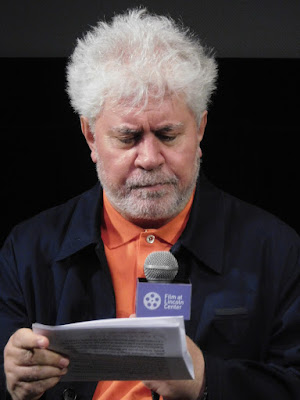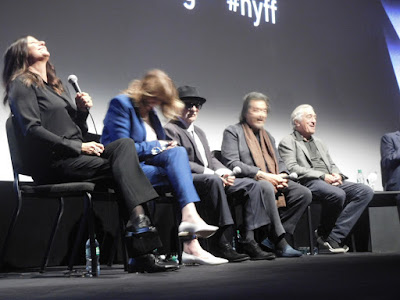China
generally has had friendly relations with Nepal, yet it still has found a way
to have a territorial dispute with the smaller nation. The area of contention
is majestic Mt. Everest. The truth is, the famous mountain peak really ought to
be under the jurisdiction of a free and independent Tibetan government. Regardless,
producer Tsui Hark and Wu Jing, the star of the Wolf Warrior franchise
will do their best to bolster China’s case with Daniel Lee’s The Climbers,
which opens today in IMAX and this Friday on conventional screens.
In
1960, Fang Wuzhou led the first Chinese expedition to successfully summit Everest.
Unfortunately, they lost their camera and a good portion of their party along
the way, so the international mountaineering establishment (including the
Soviets who trained them) did not recognize their claims. For a while, the
country went utterly insane with Maoist ideology, but by 1975 they were finally
ready to mount another Everest campaign.
Fang
will be the assault captain. Xu Ying, his college girlfriend and the love of
his life, will serve as director of the meteorological team. Qu Songlin will be
the deputy chief of the campaign, but he will have effective operational
control (since the top boss is basically a political figure head). Qu was a
veteran of the campaign, who has never forgiven Fang for saving his angry,
bitter hide, instead of the camera. Jiebu will be the third returning veteran
from 1960, who will lead the advance team.
As
you would expect from anything Tsui produces, The Climbers has plenty of
spectacle. Frankly, he and Lee throw so many avalanches and gale force winds at
the mountaineers, it is hard to believe they could possibly have the strength
to make it to the summit—and safely come back down again. As most fans of
mountaineering and alpinist movies can tell you, the descent is the most dangerous
part, but that challenge gets skipped over in the film’s coverage of both
campaigns.
The
stunt work and visual effects are impressive, but The Climbers is not
nearly as engaging as other mountain climbing dramas, such as The Himalayas from
South Korea and Climber’s High from Japan, because it lacks a human
touch. Granted, it is hard to compete with Hwang Jung-min, who is always an
electric screen presence, but the characters in Lee’s film always seem distractingly
conscious of their roles striving for greater Chinese glory.
Wu
Jing and Zhang Ziyi have decent star-crossed chemistry together, as Fang and Xu,
but his strained relationship with Yi Zhang’s Qu comes across as forced, just
like their inevitable reconciliation. There are about a dozen other task-fulfilling
characters on the expedition, but they are largely indistinguishable from each
other. That even includes Yang Guang, who is played by a surprise big name
movie star during the epilogue set decades later. However, the most problematic
portrayal might be that of the ethnic Tibetan Mudan, whose shared pride in the
Chinese milestone will be an insult to most of the occupied Tibetan people.
























































